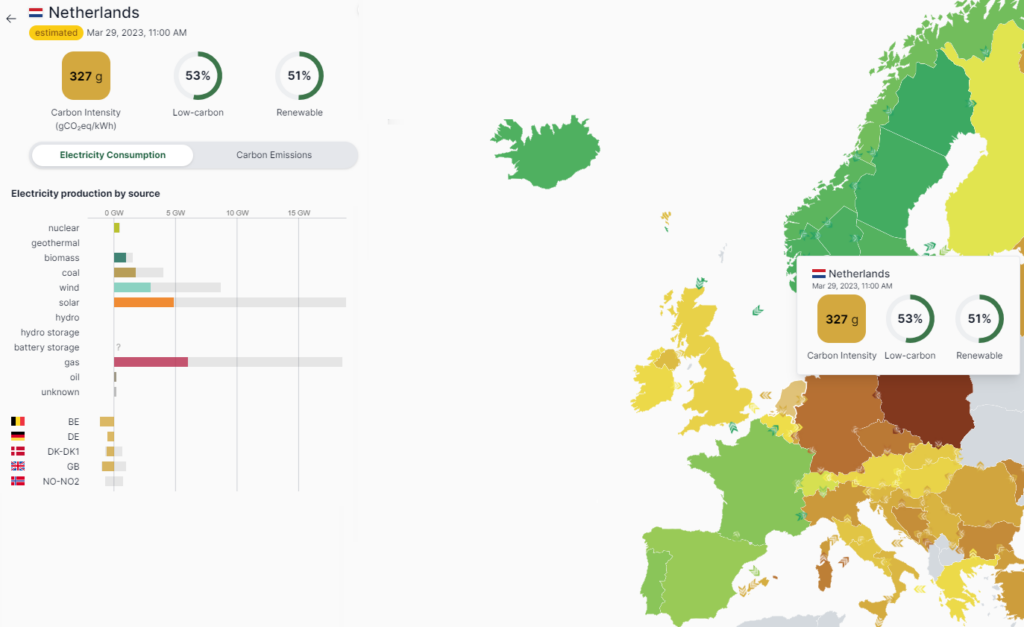Earth Hour reflections on the energy transition, are we still on track?
On the 25th of March, people around the world were asked to switch off their lights for an hour. This global event, called Earth Hour, has been known for the symbolic “lights off” moment, to show support for the planet and raise awareness of the environmental issues affecting it1
Since Earth Hour was first held fifteen years ago, the number of countries participating has gone from 35 then, to more than 190 participating this year, demonstrating what can be achieved through collective action.
Awareness that change requires action is crucial. There is a large gap between the number of people that want to live a sustainable lifestyle, and those actively changing their behaviour accordingly. A recent study by leading data and insights company Kantar conducted for BNP Paribas shows that 96%
of people wants to live more sustainably, while only 11% actually takes action to do so.
In the past year, the focus somewhat shifted from the environmental cost of electricity to the financial price consumers pay2. With rapidly rising electricity prices and consumer price inflation, the price of energy has become the centre of everyone’s attention. Especially last fall, the most pressing questions for politicians across Europe were: can we make it through the winter? At what price? And when are prices going to normalise?
It has made us aware of our vulnerability, our dependence and generally of what is at stake in the electricity market. Before bills skyrocketed, many people were hardly aware of how many kWh of electricity they consumed annually or what energy mix powered their homes.
Fast tracking renewables deployment to improve energy security
In the face of interrupted Russian gas supplies and surging energy prices, it may appear as if the shift to renewables has been paused to address shorter term energy security concerns. Some European countries, like Germany, even reopened their old coal-fired power plants.
Fortunately, there are other signs that this energy crisis is achieving the exact opposite and is accelerating the deployment plans for renewables, by highlighting the energy security benefits of domestically generated electricity. Renewable capacity expansion over the next five years will be much faster than what was expected just a year ago, according to new analysis from the International Energy Agency (IEA).3

Despite the loss of consumer purchasing power caused by double digit inflation over the past year, consumers have not only become more price sensitive. Due to the volatility in LNG, they also became more aware of the energy mix powering their households. The challenge is to use this awareness to stimulate companies, policy makers and consumers, to account for the carbon footprint of the energy mix they rely on every day, instead of one hour a year:

Strategic Sustainability Advisor at BNP Paribas Rado Georgiev says: “While there are positive signals
that the energy transition is accelerating, we need to keep the momentum high. Through their choice
of energy contract consumers can be the catalyst to fast-tracking the power sector decarbonisation
while improving energy security. Energy prices are stabilising as we enter the spring season, but we
mustn’t “let a good crisis go to waste.’, as Winston Churchill famously said.”
The ‘power generation map’ on the right visualises in real time a country’s power generation
technology mix and CO2 intensity. The tool is especially valuable because it is available worldwide
and allows for country-by- country comparison. Through its import-export arrows, the map visualises
the energy dependencies in Europe in a reminder that the low carbon transition in the power
generation sector should be achieved through collaboration.
1 More than even before, we’re at a tipping point for our planet, facing the twin crises of climate change and nature degradation. Just last week, in its latest report (https://bnpp.lk/IPCC), the IPCC issued a stark warning: we are on course to breach by 2030 the 1.5°C global temperature increase limit set by the Paris Climate Agreement. Just months earlier, the IPCC and the
Intergovernmental Science-Policy Platform on Biodiversity and Ecosystem Services (IPBES) said in a landmark report (https://bnpp.lk/IPBES) that unprecedented changes in climate and biodiversity, driven by human activities, have combined and increasingly threaten nature, human lives, livelihoods and well-being around the world.
2 In August 2022, the average electricity price for Dutch households reached 0.58 eur/kWh. The government has enacted a price ceiling of 0.4 eur/kWh for 2023. Source: Stroomprijs per kWh | Consumentenbond
3 https://www.iea.org/reports/renewables-2022/executive-summar